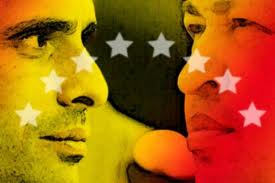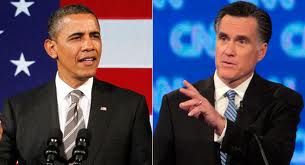


A few days before the Venezuelan elections, our official press has closed ranks around the current occupant of the Miraflores Palace in Caracas. The television commentators assure us that there will be a landslide victory for the Socialist Party and celebrate in advance. But that’s just in front of the cameras; behind the cameras is nervousness, not certainty.
Raul Castro’s government has too much invested in the Venezuelan elections on October 7. Much more than with the dismemberment of the USSR and the conversion of the Eastern European countries. On that occasion, the loss of the Soviet subsidies and the political allies of the socialist bloc submerged the country into a profound material and diplomatic crisis. But within the country the control exercised by Fidel Catro’s regime had the strength — and stubbornness — to withstand the blow.
Today, more than two decades after the fall of the Berlin Wall, little remains of the fervor, the stubborn will, with which we faced what Fidel Castro called The Special Period, a crises presented to us as a necessary sacrifice, a test of ideological fortitude.
There are so many similarities and yet profound differences. The loss of the economic underpinnings from the Kremlin forced Fidel Castro to allow self-employment, the renting of houses, the development of farmers markets, foreign investment, and opening of the Island to international tourism and dollarization.
However, it was precisely the rise to power of Hugo Chavez in 1999 that was the key element to the walking back of these reforms. With a powerful and nearby partner lavishly giving us oil, why continue to deepen the process of relaxations that resulted in a loss of power.
Raul Castro, years later, would retake the path of economic openings that his brother had retracted. This time he would be supported by the Venezuelan subsidy, which has enabled him to implement the few changes slowly in a lukewarm fashion. Perhaps there was a moment when he believed that offering farmers the ability to lease land in usufruct, or expanding licenses for self-employment, would allow Cuba to take its first steps towards economic independence.
Or maybe he always knew that this type of dependency, once established, ends up becoming a chronic situation. More than a circumstance, the need for external subsidy is the core of the Castro regime, the direct result of its inability to successfully manage the national economy.
If, on Sunday, Venezuelans reelect Hugo Chavez as president, Raul’s regime will get some breathing room. But the great polarization in Simon Bolivar’s fatherland will make it more difficult to publicly sustain the maintenance of Cuba. It will no longer be the same.
On top of that, the obvious physical collapse or the expected death of Fidel Castro is an open secret throughout the whole country. His last brief and delirious “Reflections” column was published in the newspaper on June 19. Some say they are only waiting for the end of the Venezuelan elections to put an announcement date on his obituary.
The government in Havana is approaching complicated months. Venezuela’s will be the first in a cycle of three elections that will influence, to a greater or lesser extent, our national life. The presidential election in the United States follows immediately in the list of electoral processes that lie ahead. Mitt Romney has promised a heavy hand with the Cuban authorities, but Barack Obama can also be very caustic to the Cuban system if he deepens his policy of family, academic and cultural approaches.
The first five-year term of Raul Castro will end in February 2013. Few are betting that he’s thinking of retiring to make way for a younger figure. These elections, the third that await us in the coming months, are also the last in importance and in generating expectations. The process of nominating People’s Power delegates and installing them in the National Assembly has already begun, and this body will approve the nominations to the Council of State.
If the Venezuelan results will decide whether we are granted billions in subsidies, and our relationship with our powerful neighbor to the north is in play in those elections, the Cuban elections smell strongly of a play whose script is already written. We don’t even need surveys or voter polls. There is no possibility of a surprise.
4 October 2012
